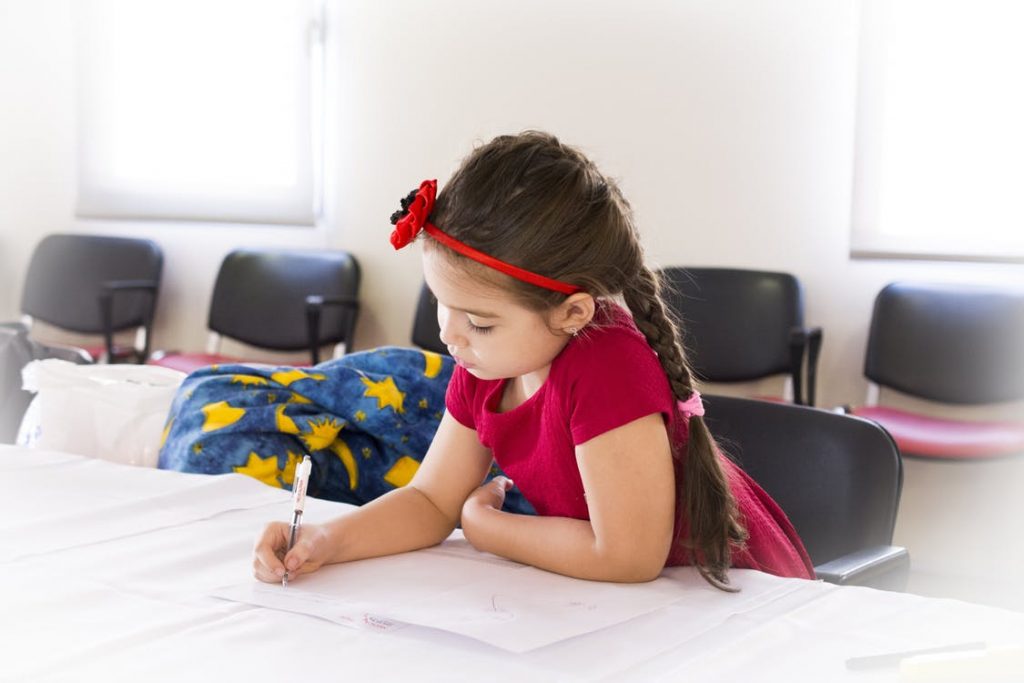A traumatic brain injury (TBI) is an injury to the brain, such as bleeding or concussion, which results from the application of an external force to the head. Common causes of TBI in children include motor vehicle accidents, sporting accidents, or other physical trauma.
A paediatric TBI (PTBI) can present unique problems relating to diagnosis and recovery. For example, it can be difficult to diagnose and determine the extent of a brain injury in a child because they may have limited ability to communicate in a way that allows you or doctors to effectively evaluate their symptoms. Early and accurate diagnosis of PTBI is further complicated as physicians very rarely have a baseline with which to compare the functional or cognitive deficits of the injured child.
Other significant and long-term symptoms of PTBI may become evident as a child grows and develops emotionally, cognitively, and behaviorally.
Each child is different, and so may be the symptoms children elicit following a PTBI. Throughout the course of their recovery, your child may be quick to fatigue, show unusual or polarized emotional extremes, have a short attention span or low tolerance for a specific activity, have difficulty with social interactions, and present issues with respect to memory, impulsivity, or anger.
What effects do PTBIs have on a child’s brain?
Children who have sustained a PTBI may have difficulty processing new information. In other words, their brain takes longer to understand things the body perceives. A PTBI may even affect how the brain controls the coordination and movements of the body.
Not only is processing new information difficult, but children suffering from PTBI may also have difficulty storing new information, such as names of new people or the rules of a new game. Limitations in processing new information may also present academic, social, and cognitive-communication challenges (see attached checklist).
In addition to losing the ability to manage new information, a child suffering from PTBI may also permanently lose memories or the capacity to perform some task they otherwise would have done with ease.
Treatment and Rehabilitation
If your child has sustained a PTBI, the initial stage of recovery will very likely take place at the hospital where they can be stabilized and any further damage to the brain avoided.
Rehabilitation following a brain injury can include the following:
- Neuropsychological services
- Occupational therapy
- Physical therapy
- Speech-language pathology services, and appropriate
- Support or accommodation at school.
The nature and severity of the brain injury will dictate the appropriate rehabilitation services for your child.
These services can be made available to your child as an inpatient at a hospital or rehabilitation facility, or on an out-patient basis if your child is well enough to live at home.
Transition back to normal life
Given the difficulties your child may encounter, their transition back to school or other daily activities may be challenging. It will be helpful to work together with medical and rehabilitation professionals, as well as school personnel, to make your child’s transition back to normal life as easy as possible. For example, various accommodations, tutoring, or an individualized education plan are just a few of the ways to reduce the difficulty your child may experience when returning to school.
Follow these links for more information about Traumatic Brain Injuries or other Paediatric Injuries. Alternatively, contact one of the critical injury lawyers at McLeish Orlando LLP for a free consultation.
——————————–
Cognitive-Communicative Checklist
This list can be used to monitor the cognitive-communicative and language skills of a child with TBI. This list is not all-inclusive and should be modified according to the needs of an individual student. These indications can appear immediately after a TBI or years later, and need to be monitored throughout the student’s academic career.
Receptive skills: Can the child understand what is said or written?
- Becomes confused by lots of spoken or written information
- Needs information repeated
- Does not follow conversations
- Recalls instructions inconsistently
- Has difficulty understanding spoken words
- Recalls or understands what has been read with difficulty
Expressive skills: Can the child express ideas?
- Uses limited vocabulary
- Does not use new vocabulary
- Uses rude or immature language
- Retells the same story repeatedly
- Talks about unrelated topics
- Talks quickly or non-stop
Cognitive-communication skills: Can the child produce and use organized language?
- Has difficulty expressing thoughts
- Becomes easily sidetracked
- Rambles in conversation or writing
- Provides short answers to questions
- Leaves out details in a response
- Loses topic focus and drops out of conversations
- Loses interest in TV or a movie
- Does not catch jokes or puns
- Takes what is said literally
- Has difficulty with reasoning or idea analysis
- Needs extra time to understand
- Isn’t sure how to use new words in conversation or writing







